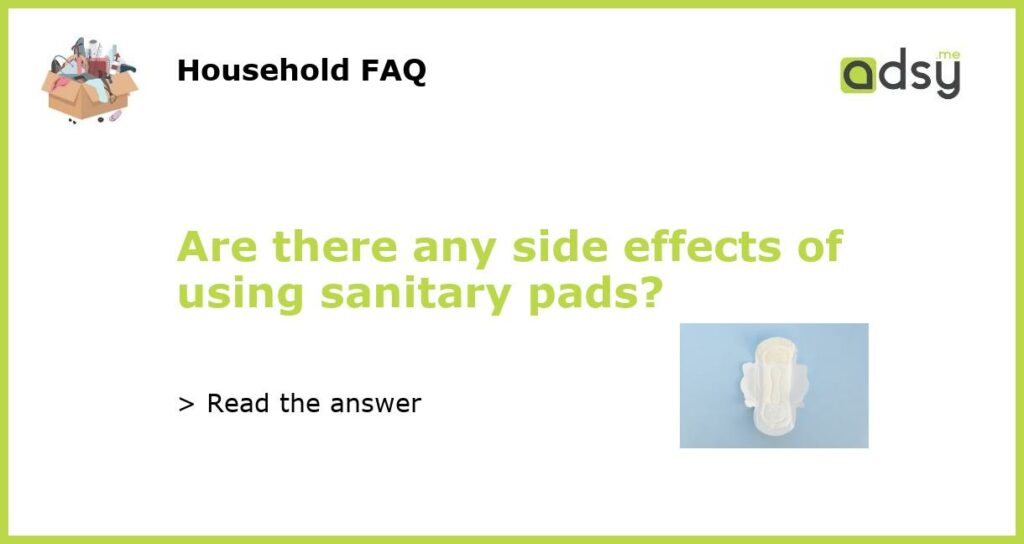Side Effects of Using Sanitary Pads
Sanitary pads are a staple in the lives of menstruating individuals, offering comfort and protection during periods. However, like any other product, sanitary pads come with their own set of potential side effects that users should be aware of. While these side effects may not be experienced by everyone, it’s important to understand the possible risks associated with their use.
Skin Irritation and Allergic Reactions
One of the most common side effects of using sanitary pads is skin irritation. Prolonged use of pads can lead to friction and chafing, causing redness, itching, and discomfort. Additionally, some individuals may experience allergic reactions to the materials or chemicals used in the production of sanitary pads. This can manifest as rashes or hives on the skin. It’s essential to choose pads made from hypoallergenic materials and avoid those with fragrance or dyes if you’re prone to skin sensitivity or allergies.
Vaginal Infections
Poor hygiene and prolonged use of sanitary pads can create a damp environment, leading to the growth of bacteria and fungi in the vaginal area. This can increase the risk of infections such as yeast infections or bacterial vaginosis. It’s crucial to change pads regularly and maintain good hygiene practices. Avoid leaving a pad on for too long, especially when the flow is heavy, as this can create a breeding ground for harmful bacteria.
Discomfort and Disruption to Normal Vaginal pH
Sanitary pads can create discomfort, particularly when they are not changed frequently. Pads that are wet or saturated can lead to a feeling of dampness, causing discomfort and irritation. Additionally, wearing pads for an extended period can disrupt the normal pH balance in the vaginal area. An imbalance in pH levels can increase the risk of infections and other vaginal issues.
Increased risk of Toxic Shock Syndrome (TSS)
Toxic Shock Syndrome (TSS) is a rare but serious condition that can occur when certain types of bacteria grow rapidly and release toxins into the bloodstream. The use of high-absorbency sanitary pads, particularly those made with synthetic materials, can increase the risk of TSS. This condition can cause symptoms such as sudden fever, rash, low blood pressure, and organ failure. It’s important to follow the recommended guidelines for pad usage and avoid wearing pads for extended periods, especially overnight.
Environmental Impact
While not a direct side effect on the individual using sanitary pads, it’s worth mentioning the environmental impact of their use. Disposable sanitary pads contribute to landfill waste, taking hundreds of years to decompose. They also require significant resources for production and contribute to pollution during the manufacturing process. As a more eco-friendly alternative, individuals may consider using reusable cloth pads or menstrual cups that can be washed and reused.






